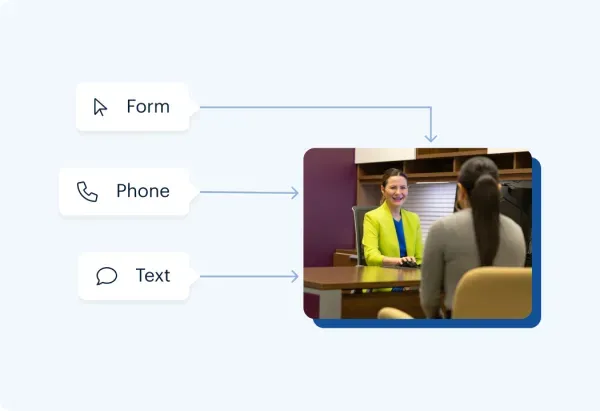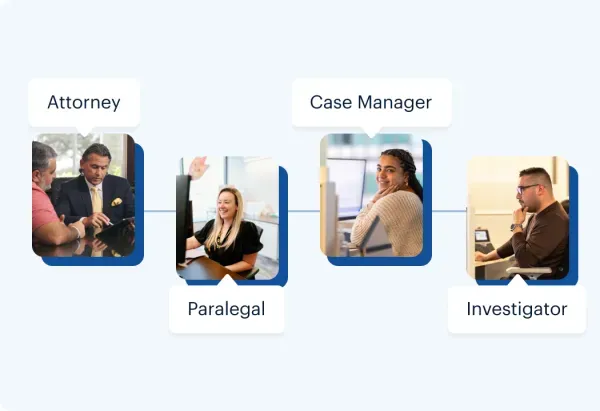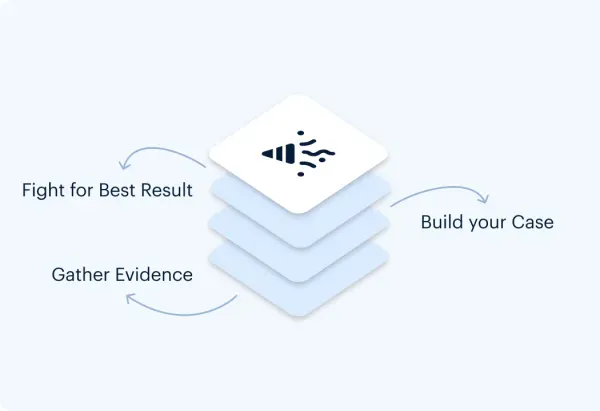Results may vary depending on your particular facts and legal circumstances. The attorney featured above is licensed in Florida. For a full list of attorneys in your state please visit our attorney page.
CHARLESTON OVERTIME ATTORNEY
If your employer denied you overtime pay, we fight to recover your lost wages and ensure fair compensation for your work.
Results may vary depending on your particular facts and legal circumstances. The attorney featured above is licensed in Florida. For a full list of attorneys in your state please visit our attorney page.
Charleston, WV Overtime
If you are an employee in the Charleston area and you work more than 40 hours in a week, you are likely entitled to overtime pay. The Fair Labor Standards Act states that non-exempt companies must pay workers 1.5 times their normal hourly rate for hours worked in excess of 40 hours in one week.
This seems fairly straightforward, but unfortunately, dishonest employers sometimes try to skirt labor laws and deny their employees overtime pay that they are owed. If you believe you are not receiving all of the pay you earned, the experienced labor law attorneys at Morgan & Morgan may be able to help. We understand the intricacies of West Virginia and federal overtime laws, and we take pride in fighting on behalf of hard-working people.
The overtime attorneys at Morgan & Morgan’s Charleston office have helped many workers who were denied the compensation they rightfully earned. If you need an attorney to fight for you, contact us for a free, no-obligation case evaluation.
150,000+ Five Star Reviews
The reasons why clients trust Morgan & Morgan.
Results may vary depending on your particular facts and legal circumstances. Based on select nationwide reviews.
Our Results
How It Works
Unsure what to do next? With 35 years of experience, our personal
injury lawyers will guide you every step of the way.

Contact Us 24/7 - It’s Free
Start your claim

Meet your dedicated attorney
Meet the attorneys

We fight for more
Learn more about the case process
Results may vary depending on your particular facts and legal circumstances. The attorneys shown in these photos may not be licensed in your state. To find an attorney licensed in your area, please visit our attorney page.
Local Care
Backed by America’s Largest Injury Law Firm.
$30 Billion
Recovered for clients
nationwide700,000+
Clients and families
served1,000+
Attorneys across
the country1
Click may change your life
The attorney featured above is licensed in Florida. For a full list of attorneys in your state please visit our attorney page.
Results may vary depending on your particular facts and legal circumstances.
Learn More
Injured and not sure what to do next?
We'll guide you through everything you need to know.
How Employers Try to Avoid Paying Overtime
Dishonest employers can use both direct and subtle methods to avoid paying their employees the proper amount. Some tactics can be difficult to spot, but if you feel like you are being treated unfairly, there is a pretty good chance that you are right. The only way to know for sure is to speak to an attorney.
These are a few ways your employer may try to avoid paying overtime:
Misclassification: Overtime laws in the Fair Labor Standards Act do not apply to all types of employers and employees. Because of this, some employers will misclassify non-exempt employees as exempt or independent contractors to avoid paying overtime. Your attorney can help you determine if you have been misclassified.
Calculating hours worked improperly: Even if you work 50 hours one week and 30 hours the next, you are still owed overtime for the extra ten hours you worked in the former. Your employee may attempt to average the two weeks, but that is not permitted.
Illegally reducing hours worked: Some employers attempt to institute “no overtime” policies and convince employees that they are not eligible for overtime. This is not allowed. Other potentially illegal ways to circumvent overtime laws include refusing to pay for training or at-home work and failing to pay workers for time spent putting on and taking off safety gear.
Of course, you may work for an employer who doesn’t know they’re underpaying you or breaking the law; regardless, you deserve fair compensation.
How an Attorney Can Help You
There are a number of ways employers can manipulate the system to avoid paying employees the full amount they have earned. If you’re not a labor law expert, it can be difficult to know if you have been the victim of wage theft or not.
The experienced attorneys at Morgan & Morgan can review your case and determine whether you should file a claim under the Fair Labor Standards Act. If you win your case, you could receive double the amount of damages incurred in lost wages plus attorney and related legal fees.
Contact Morgan & Morgan
Your employer is required by law to pay you the full amount you have earned for your work. If you believe you have been denied overtime or shorted on your pay for any reason, we may be able to help you. To learn more about your options, contact Morgan & Morgan today for a free, no-obligation case evaluation.







